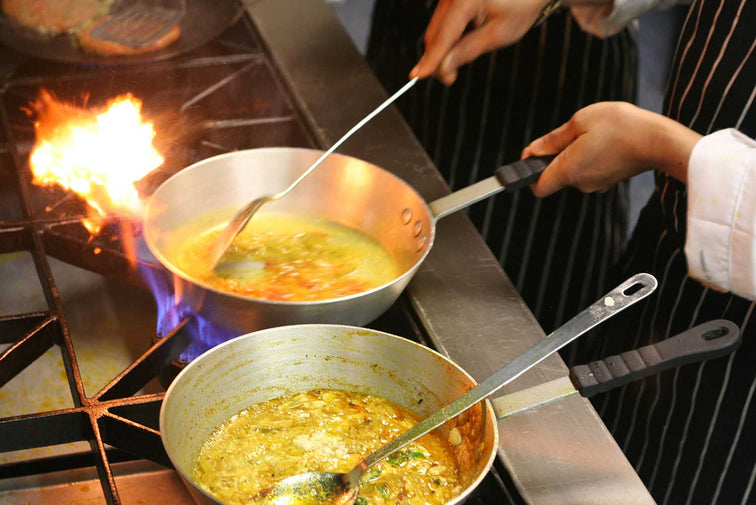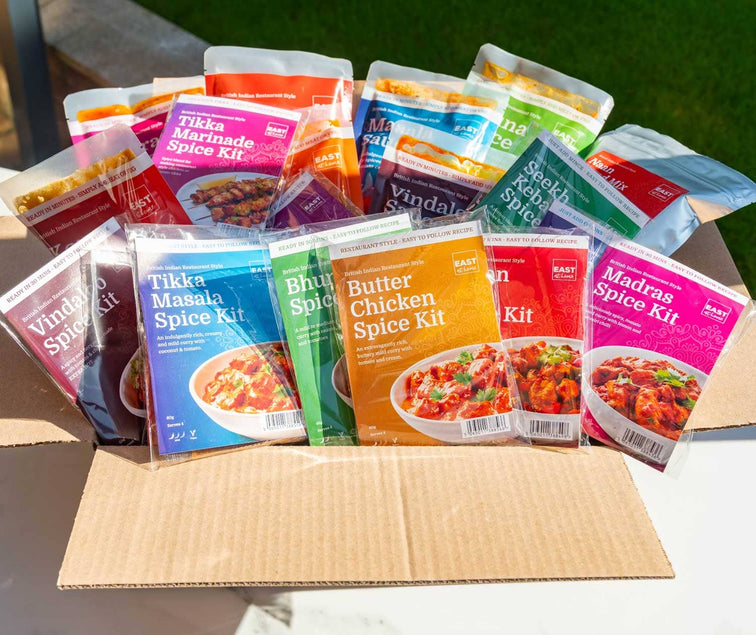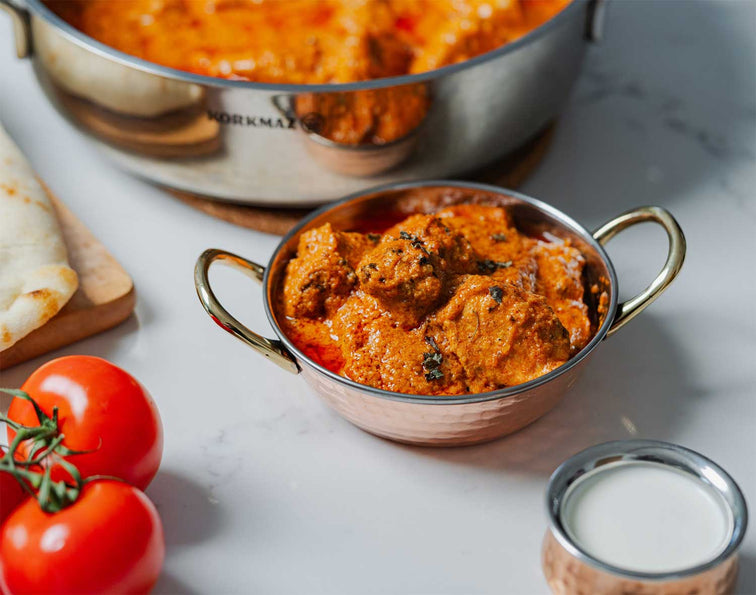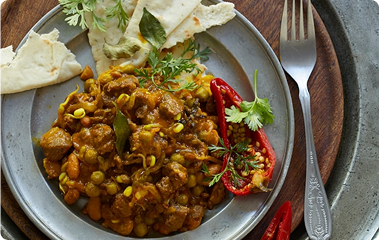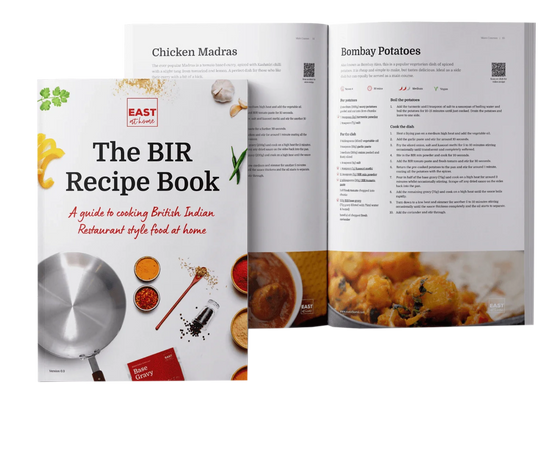BIR Cooking Tips
Keep things clean and tidy
BIR style cooking is messy, there’s no getting away from this fact. Most curries will splatter when you cook them, especially when you add base gravy and need to cook them uncovered to allow the sauce to reduce and develop in flavour. To help minimise the mess:
- Cover your cooker and surrounding areas with foil which can be disposed of. This will reduce the amount of cleanup at the end.
- Keep cleaning and wiping as you go along. This will save having to do a big cleanup at the end and also make stains easier to remove.
- Use a splatter guard (they look like a flattened sieve which goes over the pan) to reduce the amount of splatter from curries when you cook them. Avoid covering pans completely with a lid as steam needs to evaporate to help reduce the curry sauce down
- If you have the luxury of a gas burner or camping stove try cooking outside.
Have everything prepped and ready
BIR cooking is all about speed. If you try to prepare things as you go along you will most likely end up with a burnt curry. You must have everything ready and measured out before you start cooking. It’s a good idea to get small bowls or plastic cups for your prepared ingredients which can be put next to your cooker ready to go before you start any cooking.
Temperature control and timing
Using the right temperature at the right step of the cooking process is key to a good curry. You need high intense heat to cook and reduce curry sauces, but using high heat at other times will cause your ingredients to burn. Get really familiar with how your cooker and pan handle heat and how responsive they are when you adjust the temperature. Don’t be disheartened if you burn things on your first attempt, this is common for new BIR cooks. With a little patience and practice you will be able to master heat control.
Don’t skimp on the oil
Having enough oil in your pan is crucial to cooking good BIR style curries. If you don’t have enough oil, ingredients can burn and spices won’t cook in the correct way. It’s alway better to use a bit more oil than less as you can skim off excess oil at the end of cooking. When the oil starts to separate, it is a good indication that the curry is ready.
Cook spices properly
A common mistake made by beginners is to either undercook or overcook spices. If you overcook and burn your spices your curries will taste bitter; if you undercook them then they will taste raw and gritty. To cook spices properly you need enough oil in the pan and for it to be at the right temperature. Cook the spices just enough to release all their essential oils and flavours before adding your next ingredients.
Swap out chicken for whatever you like
In most of our curry recipes we’ve used pre-cooked chicken as the main filling as this is the most popular protein in restaurants and takeaways. You can however use whatever protein you prefer. Simply replace the pre-cooked chicken with your choice of pre-cooked meat, fish or veg. The rest of the recipe remains the same.
Scaling up
If you want to cook multiple portions of a curry in one pan then unfortunately it’s not as straightforward as simply multiplying the ingredients by the number of portions you are trying to cook. Scaling up curries is complicated for two reasons
- Not all ingredients scale the same way – ingredients such as spices don’t scale proportionally. If you multiply spice quantities by the number of portions you are trying to make, the curry will end up too overpowering and spicy. As a very rough guide, if you are doubling the curry portion, using 1.5x quantity of the spices is a good starting point (e.g. if the recipe calls for 1 teaspoon of mix powder use 1 ½ teaspoons), but this depends on the curry you are making and will need to be adjusted to taste.
- Less heat is applied – when you increase the volume and quantity of ingredients in a pan, the heat is spread over a greater quantity. As a result the curry is boiled rather than receiving the more intense heat required to achieve caramelisation that is essential to BIR style cooking. Larger portions of cooked curry will always taste different to single cooked portions.
The easiest solution is to cook single portions of curry multiple times and keep them warm or reheat them when needed. This is what happens in BIR kitchens.
Experiment
In BIR kitchens, recipes are rarely if ever written down. Chefs learn by watching and making and will usually add their own twists to a recipe. This is how BIR cooking has evolved and why there is such a difference in taste between the same dish in different establishments and regions. Our recipes are there as a guide, feel free to experiment and tweak things to your tastes.
